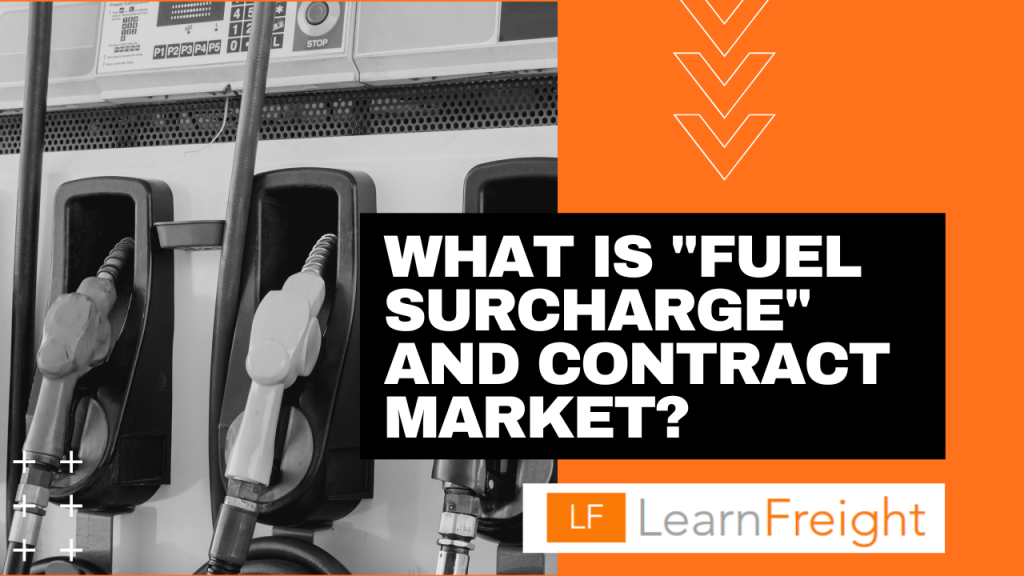A Spot Market versus a Contract Market in Transportation
To understand the difference between contract freight and spot freight, let’s take a look at the following example. The term “contract freight” is used when a freight broker secures a dedicated lane for multiple shipments from their client. For example, a utility vehicle manufacturer sends one shipment daily to a distribution center. They want to secure a reliable carrier that would pick up a shipment at their location every day, and they want to do so at the most affordable rate. Basically, they can guarantee the business in return for a favorable shipment rate.
In most cases, they will invite brokers to bid on this lane and select the most attractive option. The benefit to the shipper, in our case, the utility vehicle manufacturer, is that they will have the security of getting their shipments out every day at a predetermined rate regardless of the freight market’s fluctuations. The motor carrier will also benefit from working at a predetermined rate, enjoying the stability of having secured work every day for a certain period of time. The freight broker will benefit from the standpoint of regular business as well. In most cases, such contracts are signed between large shippers with regular freight and larger brokers or carriers who can provide enough capacity to service those regular shipments.
But what can a smaller shipper do? Let’s assume there’s a small scrap metal yard that ships a load of scrap metal to a recycling plant. However, they only ship when they have collected enough metal. Therefore, they can guarantee neither the number of shipments nor the days when cargo needs to be shipped. And with so much uncertainty, it would be hard for them to sign a contract with a broker or a transportation company.
The solution for them is to go to the so-cold “spot market.” More likely, though, they will go to a freight broker and get an estimate or a rate quote for the cost to ship their cargo from point A to point B. Then the broker will post the load on the load boards as soon as the shipment becomes available and work on finding a motor carrier that will transport the load of metal for their client.
So, let’s summarize. When we speak about spot market freight, we are talking about a single non-regular shipment. When we discuss contract freight, we are talking about multiple loads shipped consistently.

Fuel surcharge
Regarding contract freight, we need to mention one more important term you will often hear, fuel surcharge. The fuel surcharge is an extra fee charged by trucking companies or third parties to cover the fluctuating cost of fuel. It is calculated as a percentage of the base rate and is usually added to the shipper’s freight bill to cover the cost of operations.
Now let’s imagine our utility vehicle manufacturer is looking to sign a contract to ship four loads per week for the duration of 12 months. You find a carrier willing to accept this work for $2.80 cents per mile with the fuel price of, for example, $2.50/gal and the average consumption of five miles to a gallon. The fuel cost per mile is 50 cents. Therefore, the net rate is $2.80 cents minus 50 cents. So, it’s $2.30.
Let’s say this rate is acceptable for the motor carrier now, but what if the price of fuel goes up to $4 per gallon in the next few months? With an average consumption of five miles to a gallon, the fuel cost per mile is now 80 cents. Therefore, the net rate is going to go down to $2. At this rate, the motor carrier will not generate enough profit since they’ve established $2.30 as the minimum acceptable rate when they were bidding on this contract.
This is where a fuel surcharge can be helpful. Instead of offering to transport a shipper’s cargo for $2.80 per mile during the next 12 months, the offer can be made as a $2.30 base rate plus a fuel surcharge. Fuel surcharge is determined based on the average fuel prices in the country. So, as prices increase, so does the fuel surcharge. When fuel prices fall, the fuel surcharge declines as well.
So as you can see, the fuel surcharge is a useful tool for long-term contracts and is pretty much irrelevant for spot market loads. As a broker, you will bid on both spot market and contract market rates. When it comes to the spot market, you’ll probably be quoting a flat rate for any given lane. However, quoting a flat rate may be risky when it comes to contract rates. Therefore, you may want to consider a fuel surcharge as part of your quoting strategy.
Now I hope you have a better understanding of what a fuel surcharge is. Once again, I have to point out that when most freight brokers start doing business, they concentrate mostly on the spot market. And with a spot market, a fuel surcharge is pretty much irrelevant, so you don’t have to worry about it. However, as your business develops and you try to get long-term contracts because they are repeat business, and therefore, constant revenue for you, the fuel surcharge will come into play. So it is important that you understand what it is.
Are you thinking about becoming a Freight Broker or a Freight Agent? LearnFreight offers Online Freight Brokering Training Courses which are suitable for people not familiar with transportation industry. Learn more about our training by visiting Training Details page or choose your course here.
